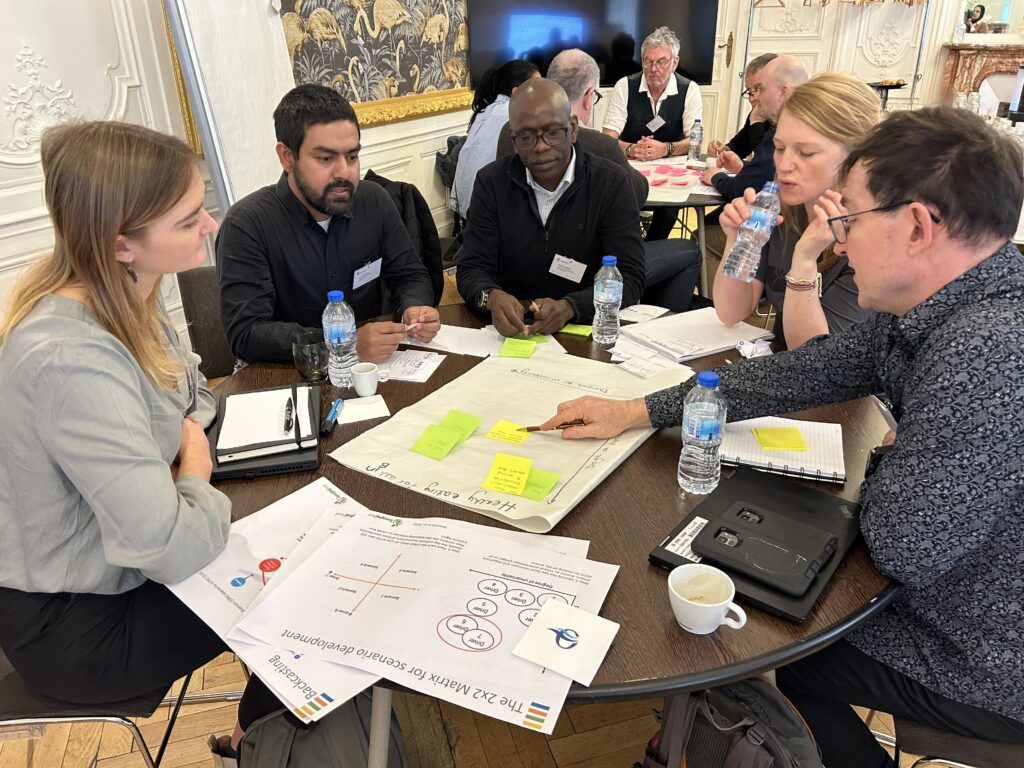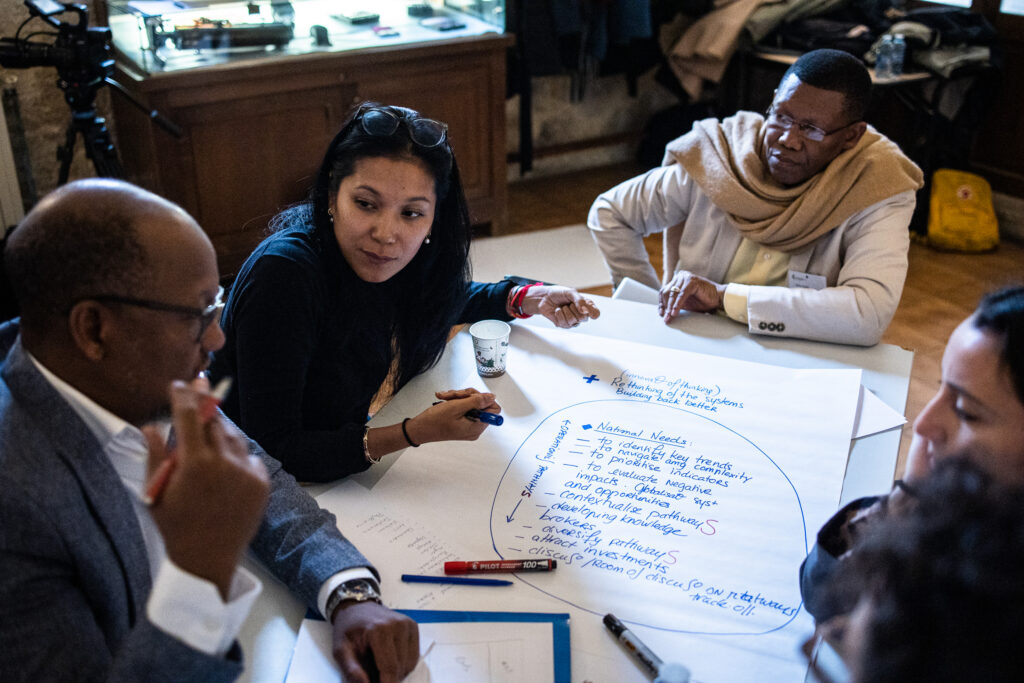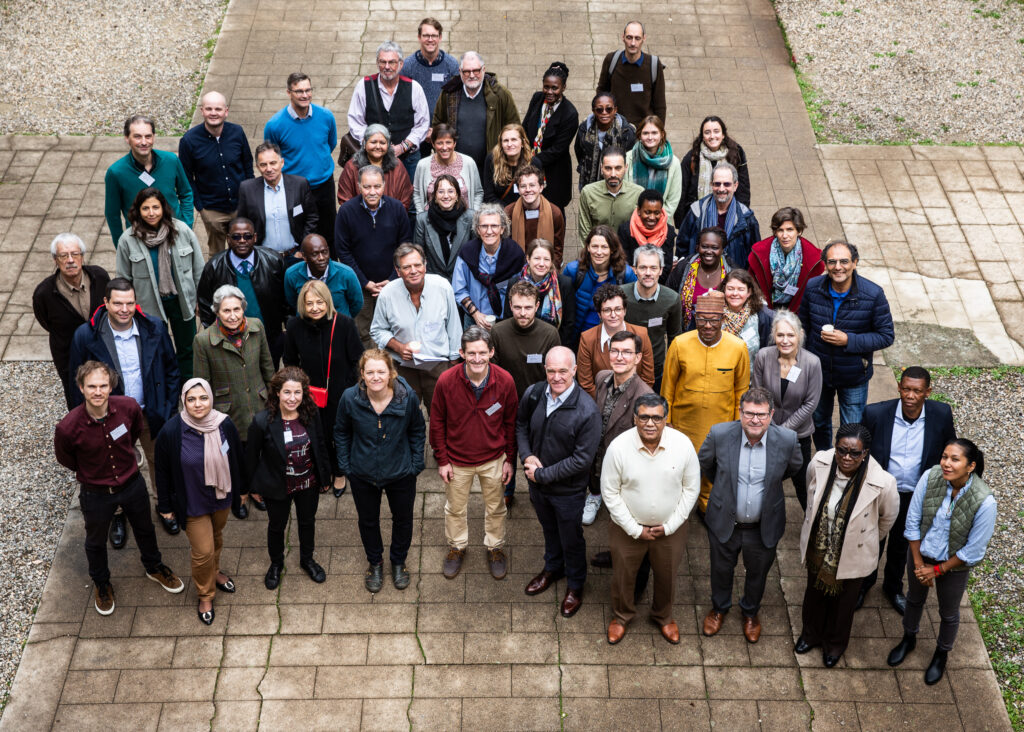Reflections on the Third Global Foresight4Food Workshop in Montpellier 2023
By Bram Peters, Food Systems Programme Facilitator
Strike? What strike?
Amid the turbulence created by strikes in France, a diverse and committed group of people still managed to get to and from the Third Global Foresight4Food Workshop in Montpellier from 7-9 March.
Perhaps, as foresight practitioners, we should have seen it coming! You would think that foresight practitioners who make it their business to look into the future might be better at anticipating turbulence, or at least a substantial level of social upheaval.
Why go through the trouble to come anyway? Because food systems are in turbulence as well. Never has there been a more urgent need to transform food systems. More than 3.1 billion people globally do not have access to healthy diets. The impact of climate change in the form of droughts and disasters is increasing. Agri-food systems are responsible for one-third of greenhouse gas emissions. The Covid-19 pandemic and the Russia war in Ukraine have shown how integrated, yet fragile, the global food system is.
We need foresight in food systems transformation
Yet, “the greatest danger in times of turbulence is not the turbulence; it is to act with yesterday’s logic” (according to futurist Peter Drucker). That’s where foresight comes in.
We need a long-term perspective to explore alternative pathways to reach desirable or avoid undesirable food system changes.
Following from the UN Food Systems Summit in 2021, many countries are searching for ways to navigate change and develop anticipatory policy to guide them.
As such, the issue on the table was: how can the foresight community of practice offer support and relevant advice to food system stakeholders?
Creating a safe space to think, connect and engage
In Montpellier, Foresight4Food brought together a diverse group of foresight practitioners, researchers, users of foresight and implementors of food systems approaches to discuss how foresight can contribute to national level food systems transformation pathways amid all this turbulence.
The Masterclass on the 7th generated a lot of energy, a shared language, and many practical explorations of tools and methods. The main Workshop on the 8th and 9th saw interactive exchanges, presentations of valuable projects and sharing of insights.

Among others, organisations such as FAO, CGIAR, GFAR and CIRAD shared ground-breaking applications of foresight thinking linked to food systems. There were cases from Asia, Africa; thematic cases on food systems data; new and past initiatives; dashboards and multi-stakeholder processes.
Researchers and data experts, such as from Wageningen University and Food and Land Use Coalition, shared innovative tools and models to advance new ways of projecting trends.
Critical perspectives were shared. Insights were brought from Africa and Asia, such as by Forum for Agricultural Research in Africa, and much more.

Moving the needle: developing our forward agenda
We, as Foresight4Food team, gained a lot of energy and motivation to continue fostering this vibrant network.
A few pickings of things we want explore moving forward. Develop and encourage ‘Communities of Practices’ through active partnership principles. Make a meta-analysis of existing food system foresight cases and comparative insights and lessons. Create guidance for foresight community on the process of actually doing foresight for food systems. Develop key principles for quality approaches and a toolbox to support implementation.
Thankfully, even in the face of the French strikes, a quality characteristic among foresight practitioners is the ability to be adaptable and flexible – as is needed when you work with the complexity of food systems.
